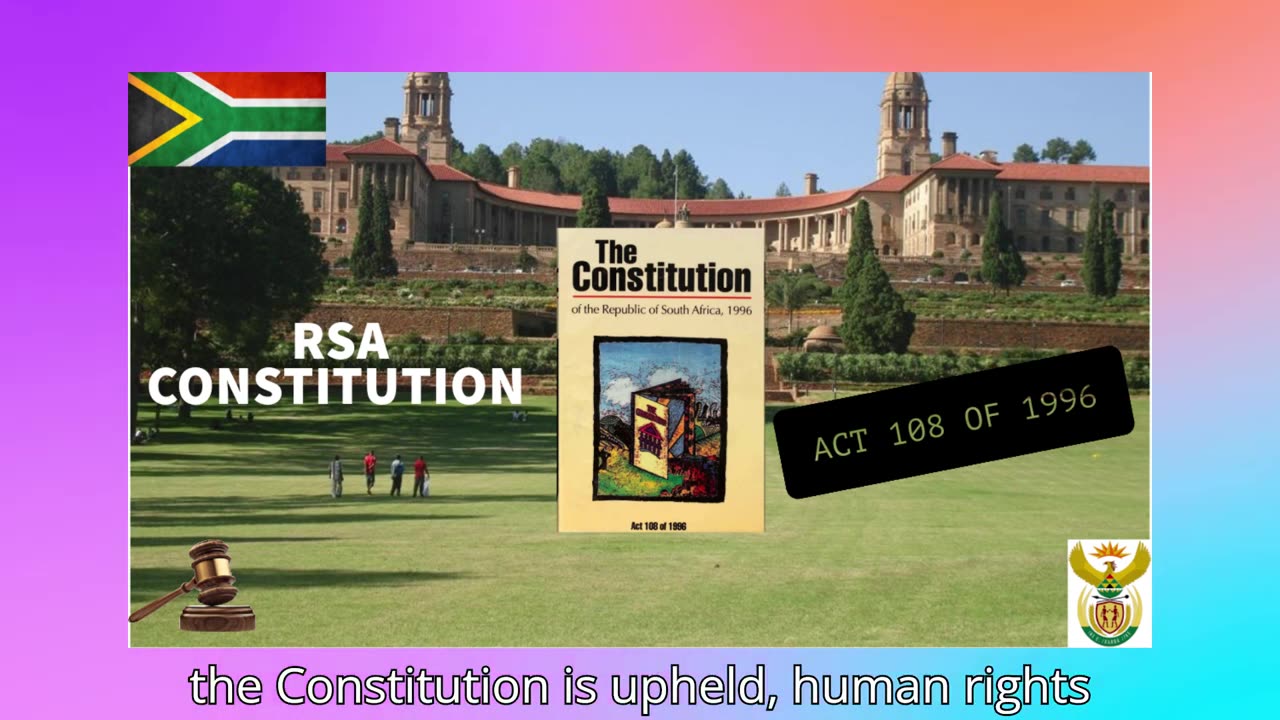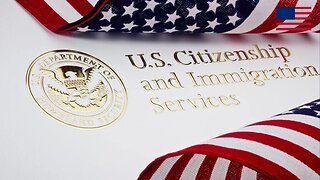Premium Only Content

South African Constitution
The Constitution of the Republic of South Africa, enacted in 1996, serves as the supreme law of the nation, establishing the framework for governance and protecting the rights of all citizens.
Here’s a summary of its key components:
Structure of the Constitution.
Preamble: Sets the tone and foundational values of the Constitution.
Chapters: The Constitution consists of 14 chapters containing 244 sections and 8 schedules, each addressing specific topics related to governance and rights.
Key Chapters
Chapter 1: Founding Provisions
This chapter defines South Africa as a sovereign, democratic state founded on principles such as human dignity, equality, and non-racialism. It includes:
Supremacy of the Constitution: All laws must align with it.
Recognition of official languages and national symbols.
Chapter 2: Bill of Rights
The Bill of Rights is a cornerstone that guarantees fundamental rights to all individuals, including:
Equality before the law (Section 9).
Right to life (Section 11).
Freedom from torture and degrading treatment (Section 12).
Freedom of expression (Section 16) and assembly (Section 17).
Rights related to citizenship, including freedom of movement (Sections 21) and the right to participate in political processes (Section 19).
Chapter 9: State Institutions Supporting Constitutional Democracy
This chapter establishes various institutions designed to uphold democracy and human rights, such as:
The Public Protector.
The South African Human Rights Commission.
The Independent Electoral Commission.
Chapter 10: Public Administration
Outlines principles for public service, ensuring accountability and transparency in government operations.
Chapter 11: Security Services
Defines civilian oversight over security forces, including the police and military, emphasizing accountability to Parliament.
Importance of the Constitution
The South African Constitution is significant because it:
Protects individual rights against state infringement.
Establishes a framework for a democratic government with regular elections.
Promotes socio-economic rights, including access to housing, healthcare, and education, while acknowledging that these may be fulfilled progressively based on available resources.
Overall, the Constitution not only serves as a legal document but also embodies the aspirations for a just and equitable society in South Africa.
-
 1:05
1:05
tether
9 hours agoHadron by Tether - tokenize anything, anywhere
562 -
 34:32
34:32
Standpoint with Gabe Groisman
18 hours agoGovt. Workers AREN’T Working Says DOGE Chair Sen. Joni Ernst
313 -
 LIVE
LIVE
Savanah Hernandez
2 hours agoMASS DEPORTATIONS ARE HERE AND THEY ARE GLORIOUS
1,358 watching -
 21:12
21:12
Clownfish TV
15 hours agoThe Video Game Industry LITERALLY Wants You Dead?!
7144 -
 1:35:44
1:35:44
Right Side Broadcasting Network
5 hours agoLIVE REPLAY: First Press Briefing by White House Press Secretary Karoline Leavitt - 1/28/25
79.9K78 -
 DVR
DVR
vivafrei
6 hours agoJan. 6 Injustices! Jeremy Brown STILL IN JAIL! Untold Story of Ashli Babbitt Killer Michael Byrd!
43K12 -
 3:09:52
3:09:52
Benny Johnson
4 hours ago🚨 First Trump White House Press Briefing LIVE Right Now! New Press Secretary With the FLAMETHROWER
121K167 -
 44:12
44:12
Ben Shapiro
3 hours agoEp. 2126 - Did China Just DRINK OUR MILKSHAKE?!
40.1K23 -
 1:11:08
1:11:08
Russell Brand
3 hours agoTrump’s Deportation Wave Begins – SF527
66.2K132 -
 2:57:07
2:57:07
The Charlie Kirk Show
3 hours agoThe Big Pause + ICE in Chicago + The Birthright Citizenship Scam | Glenn, Hammer, Eastman | 1.28.25
99.7K22